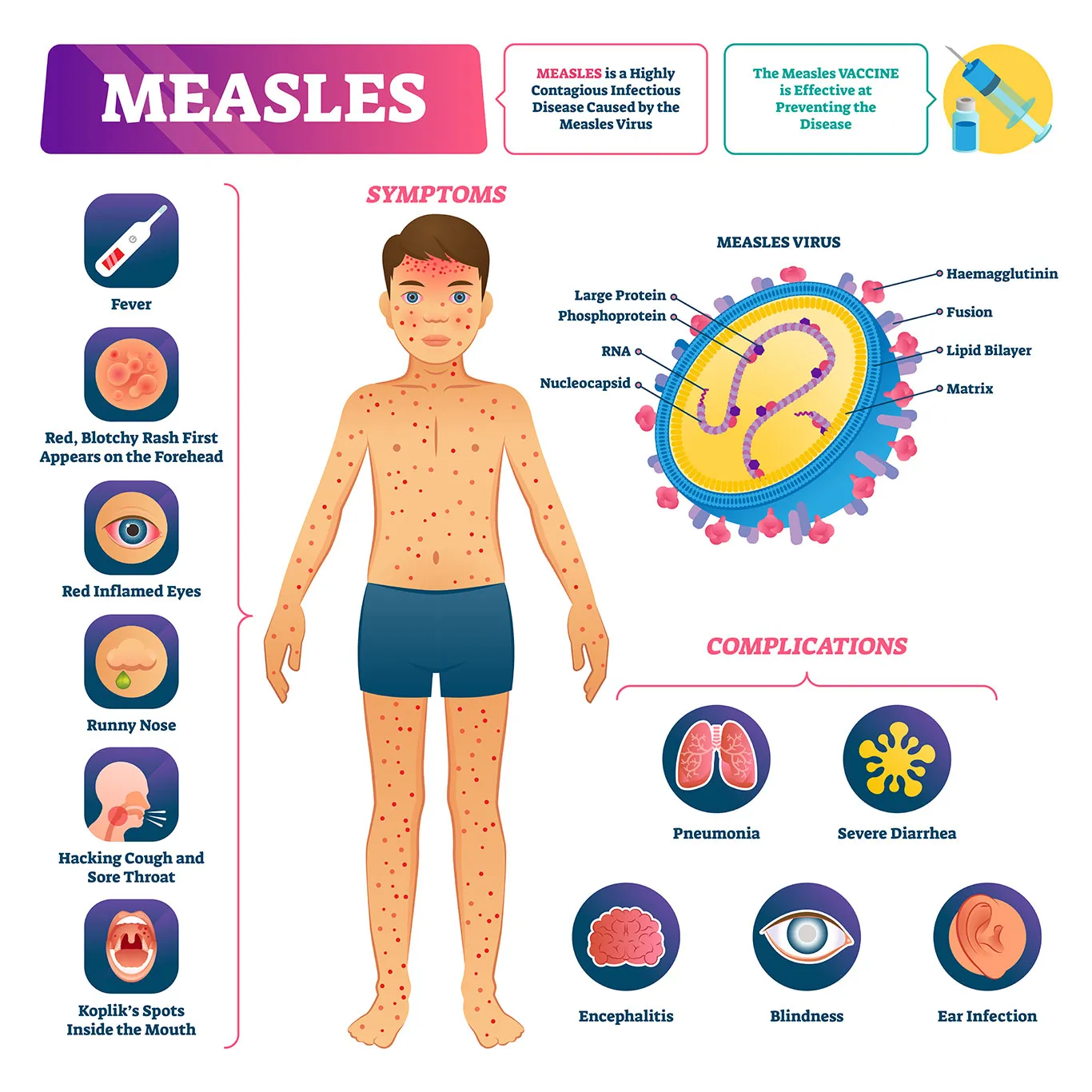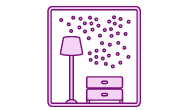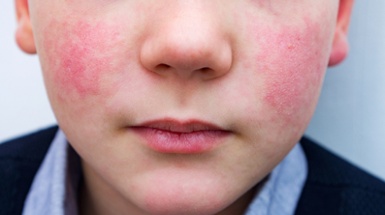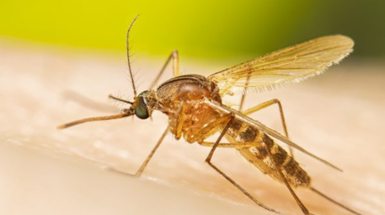Measles
What is measles?
Measles is very contagious and can cause serious illness. Measles is caused by a virus and spreads very easily when an infected person breathes, coughs or sneezes. Measles spreads so easily that anyone who is exposed and not immune (either by being immunized or having had measles in the past) will probably get it.
Most people in the United States are protected against measles through vaccination. Unvaccinated travelers can get measles while they are in other countries and bring measles into the United States. They can spread measles to other people who are not protected against measles, which sometimes leads to outbreaks. This can occur in communities with unvaccinated people.

What are the signs and symptoms of measles?
The symptoms of measles generally appear about seven to 14 days after a person is infected and typically include:
-
High Fever (101-105o F)
-
Cough, runny nose (coryza) and red, watery eyes (conjunctivitis).
-
Tiny white spots (Koplik spots) may appear inside the mouth 2-3 to days after the first symptoms
-
Rash appears 3-5 days after the first symptoms, usually beginning at the hairline and spreading downward to the neck, trunk, arms, legs, and feet.
Learn more about the signs and symptoms here
How is measles spread?
Measles spread to others through coughing and sneezing. If other people breathe contaminated air or touch an infected surface, then touch their eyes, noses, or mouths, they can become infected. Infected people can spread measles to others four days before through four days after the rash appears.

How contagious is measles?
The measles virus can live for up to two hours in an airspace where the infected person coughs or sneezes. Measles is so contagious that if one person has it, up to 90% of the people close to that person who are not immune will also become infected.

How serious is measles?
Measles can cause serious health complications, especially in children younger than 5 years of age, adults older than 20 years of age, pregnant women and people with compromised immune systems, such as from leukemia or HIV infection. Serious complications include:
-
Hospitalization. About 1 in 5 unvaccinated people in the U.S. who get measles is hospitalized.
-
Pneumonia. As many as 1 out of every 20 children with measles gets pneumonia, the most common cause of death from measles in young children.
-
Encephalitis (swelling of the brain). About 1 child out of every 1,000 who get measles will develop encephalitis that can lead to convulsions and can leave the child deaf or with intellectual disability.
-
Complications during pregnancy. Measles may cause pregnant women who have not had the MMR vaccine to give birth prematurely, or have a low-birth-weight baby.
-
Death. Nearly 1 to 3 of every 1,000 children who become infected with measles will die from respiratory and neurological complications.
Common Complications include:
-
Ear infections occur in about one out of every 10 children with measles and can result in permanent hearing loss.
-
Diarrhea is reported in less than one out of 10 people with measles.
Learn more about possible complications here
How can measles be prevented?
Measles can be prevented with MMR vaccine. The vaccine protects against three diseases: measles, mumps, and rubella.
Healthcare providers recommend two doses of the MMR vaccine, starting with the first dose at 12 through 15 months of age and the second dose at 4 through 6 years of age.
Teens and adults are considered up to date on their MMR vaccination if they’ve had the two doses.
Adults -- Do you know your vaccination status? Did you have measles when you were young? Now might be a good time to check into that.
Appointments are available for all ages at our City of Cincinnati Primary Care (CCPC) health centers, regardless of insurance status. Please call (513) 357-7320 to schedule an appointment.
Does past infection make a person immune?
Yes. Permanent immunity is acquired after contracting the disease.
What is the treatment for measles?
There is no specific treatment for measles. Prevention is the best protection against measles.
Latest News
-

- Jun. 13
- Bats and Rabies





